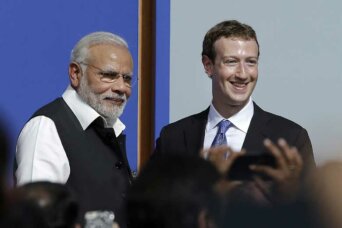- About
- Topics
- Picks
- Audio
- Story
- In-Depth
- Opinion
- News
- Donate
-
Signup for our newsletterOur Editors' Best Picks.Send
Read, Debate: Engage.
| topic: | Freedom of Expression |
|---|---|
| located: | India |
| editor: | Tish Sanghera |
With a flurry of filed lawsuits, office raids and rumours of Twitter getting banned, it’s been an ominous week for social media giants in India.
The deadline for platforms like Twitter, Facebook and Google to comply with Delhi’s new IT regulations ended on 25 May. The new IT rules are controversial because they force platforms to reveal user details to the Indian authorities upon request.
While IT Minister Ravi Shankar Prasad says the new rules are aimed at preventing the “abuse and misuse of social media,” digital rights and privacy activists say they could be used to target government critics and stifle dissent.
Given the government’s track record of punishing dissenters and flouting privacy norms to target critics, it’s clear why activists fear the new rules could further weaponise social media in law enforcement’s hands.
During the pandemic, for example, the government asked Facebook and Twitter to remove posts criticising their handling of the pandemic and arrested those who made posters calling out the vaccine shortage. The Indian government is also among several governments that are believed to have installed Israeli spyware on journalists’ and activists’ phones to monitor their communications.
Twitter is currently leading the backlash against the new IT rules. The US tech company has said it’s concerned over the potential threat to freedom of expression and has requested extra time to discuss the changes. In particular, Twitter is concerned about the requirement to appoint an India-based compliance officer, especially after recent threats to its staff’s safety.
Delhi police raided Twitter’s head offices earlier this week after the tech company labelled a tweet by a BJP spokesperson as “manipulated media”. The tech giant later said the raid was a form of “intimidation” and that it was concerned for the personal safety of its employees.
WhatsApp, the Facebook-owned messaging platform, also sees threats ahead to citizens' privacy. The new rules would endanger its commitment to providing end-to-end encryption, forcing Whatsapp to make each message ‘traceable’. The company has warned such rules would amount to the Indian government mandating mass surveillance and has now filed a lawsuit against them in the Delhi High Court.
Meanwhile, Google and Facebook have said they will comply with the new rules. This could be more cause for concern as Google, for example, holds significantly more data on most individuals. In fact we have already seen how a technology platform collaborating with law enforcement plays out. Earlier this year, 22 year-old climate activist Disha Ravi, was held in custody for 9 days. She was the editor of a Google Doc that the Indian government claimed contained proof of sedition, indictment and conspiracy against the state. Google had shared Ravi’s details with the Police immediately upon their request.
Though Indian citizens have seen the conflict with Big Tech coming, many are upset that the government appears distracted when there are more pressing issues at hand. In a week when China (another vaccine powerhouse like India) vaccinated over 1 million people a day, Indians continue to be confronted with the government’s abject failure to safeguard its population.
Although the number of Covid-19 cases remains high and the virus is ripping through rural India, the government seems more inclined to focus on tech platforms than the pandemic.
Image: jackwilliams10.

